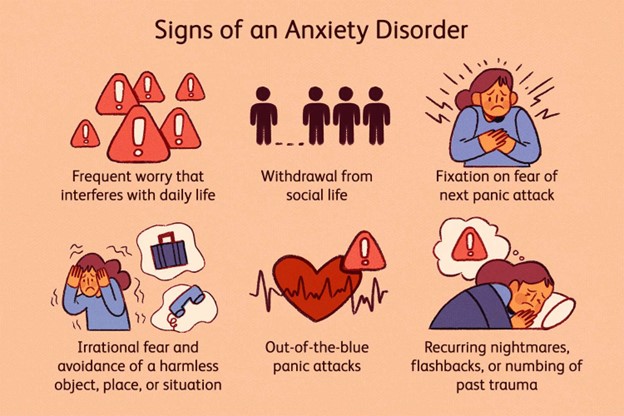A nurse is caring for a young adult client who says he is experiencing increased anxiety and an inability to concentrate. Which of the following responses should the nurse make?
"How long has this been going on?"
"Why do you think you are so anxious?"
"Have you talked to your parents about this yet?"
"It sounds like you're having a difficult time."
The Correct Answer is D
A. "How long has this been going on?":
While this question is important for gathering more information, it may come across as more investigative or less empathetic at this initial stage of the conversation.
B. "Why do you think you are so anxious?":
While it's important to understand the client's perspective, this response might come across as confrontational or judgmental. It's better to create an open and non-judgmental environment for the client to share their feelings.
C. "Have you talked to your parents about this yet?":
This response assumes that the client has parents to talk to and may not be relevant for all clients. It's also important to establish trust and rapport with the client before asking about their support network.
D. "It sounds like you're having a difficult time.":
This response is empathetic and validating. It acknowledges the client's feelings without making assumptions or demands, creating a supportive environment for further discussion.

Nursing Test Bank
Naxlex Comprehensive Predictor Exams
Related Questions
Correct Answer is D
Explanation
A. "How long has this been going on?":
While this question is important for gathering more information, it may come across as more investigative or less empathetic at this initial stage of the conversation.
B. "Why do you think you are so anxious?":
While it's important to understand the client's perspective, this response might come across as confrontational or judgmental. It's better to create an open and non-judgmental environment for the client to share their feelings.
C. "Have you talked to your parents about this yet?":
This response assumes that the client has parents to talk to and may not be relevant for all clients. It's also important to establish trust and rapport with the client before asking about their support network.
D. "It sounds like you're having a difficult time.":
This response is empathetic and validating. It acknowledges the client's feelings without making assumptions or demands, creating a supportive environment for further discussion.

Correct Answer is D
Explanation
A) Maturational crisis:
This type of crisis arises from normal life transitions, such as entering a new stage of development (adolescence, midlife crisis, etc.). It involves a struggle to adapt to new roles and responsibilities. The client's situation does involve a life transition due to the death of his wife, but the sudden nature of the event and the resulting distress suggest a situational crisis.
B) Adventitious crisis:
Adventitious crises are caused by extraordinary events that are external to the individual's usual experience, such as natural disasters, accidents, or crimes. While the sudden death of the client's wife is an unexpected and tragic event, it's not an adventitious crisis because it involves personal loss rather than a large-scale or external event.
C) Developmental crisis:
Developmental crises are associated with specific stages of life and the challenges and changes that come with them. This crisis doesn't seem to fit the developmental category as it is more tied to the specific event of the wife's sudden death.
D) Situational crisis
Explanation:
A situational crisis is a type of crisis that arises from a specific event or situation that disrupts an individual's normal functioning and coping abilities. In this case, the sudden death of the client's wife is the triggering event that has led to his feeling paralyzed and overwhelmed in his ability to cope with work and family responsibilities. Situational crises are often unexpected and can lead to a temporary state of disorganization and distress.
Whether you are a student looking to ace your exams or a practicing nurse seeking to enhance your expertise , our nursing education contents will empower you with the confidence and competence to make a difference in the lives of patients and become a respected leader in the healthcare field.
Visit Naxlex, invest in your future and unlock endless possibilities with our unparalleled nursing education contents today
Report Wrong Answer on the Current Question
Do you disagree with the answer? If yes, what is your expected answer? Explain.
Kindly be descriptive with the issue you are facing.
